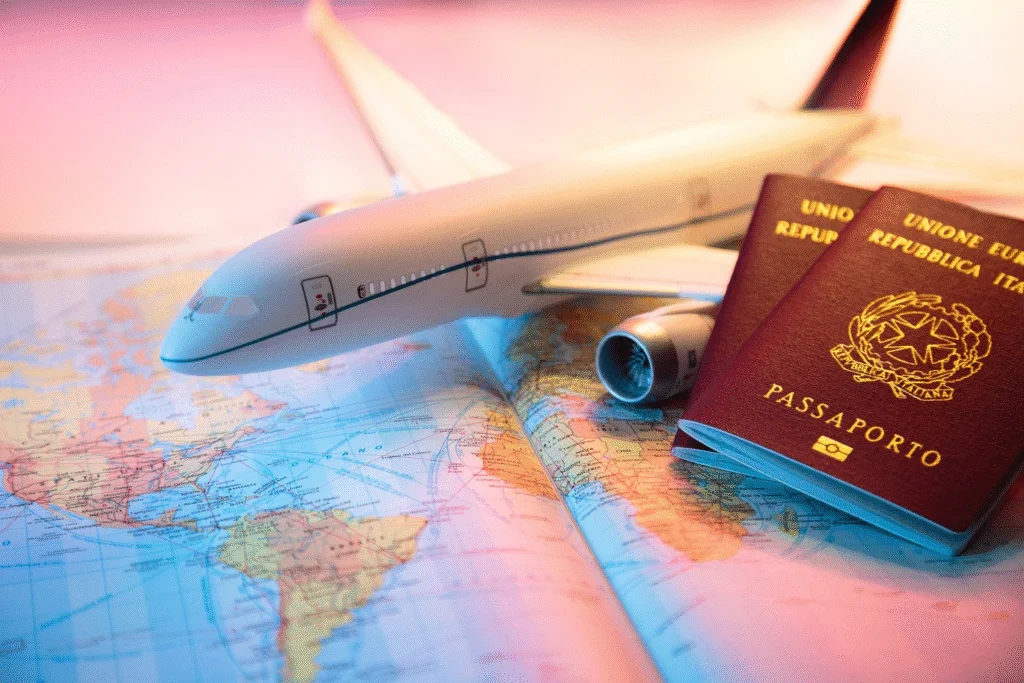Traveling abroad, especially for DoD personnel, government employees, or corporate travelers handling sensitive information, comes with unique risks. One key step to ensuring safety and compliance is receiving a defensive foreign travel briefing. But when must you receive a defensive foreign travel briefing, and what are the essential safety measures you should follow? This comprehensive guide will answer these questions and provide 7 crucial tips for secure international travel.
What Is a Defensive Foreign Travel Briefing?
A defensive foreign travel briefing (DFTB) is a structured training session designed to educate travelers on potential risks, threats, and legal responsibilities when traveling internationally. The briefing covers topics such as:
- Personal safety precautions
- Safeguarding sensitive or classified information
- Understanding local laws and customs
- Recognizing espionage and fraud attempts
These briefings are vital for individuals handling classified materials, as well as those traveling on official government business. They ensure that travelers are informed and prepared for potential threats abroad, ultimately reducing risks during their trips.
Why Defensive Travel Briefings Are Important

Why are defensive travel briefings important? Simply put, they protect travelers from threats that may arise during foreign travel. Key benefits include:
- Risk Awareness: Travelers learn about country-specific risks, such as political instability, crime rates, or health hazards.
- Information Security: Guidance is provided on handling and protecting classified or sensitive information.
- Legal Compliance: Ensures compliance with DoD and other governmental regulations to avoid potential violations.
- Emergency Preparedness: Travelers receive instructions on what to do in emergencies like natural disasters, arrests, or medical issues.
Skipping a defensive travel briefing can leave travelers vulnerable to security breaches or legal complications, especially for DoD personnel and corporate travelers carrying sensitive information.
Who Must Receive a Defensive Travel Briefing
What must all DoD personnel do prior to foreign travel? Any individual traveling abroad for official purposes or handling sensitive data should receive a briefing. This includes:
- DoD personnel on assignments or deployments
- Government employees traveling for official duties
- Frequent travelers or corporate staff managing sensitive projects abroad
Receiving a defensive foreign travel briefing ensures that all travelers understand both their personal responsibilities and the organizational protocols required for secure international travel.
When Must You Receive the Briefing
When must you receive a defensive foreign travel briefing? Key timing requirements include:
- Before your first foreign assignment or travel – ensures foundational awareness.
- Annual refreshers – DoD personnel and other designated travelers must attend refresher sessions to stay updated on emerging threats.
- Special circumstances – When new sensitive projects, countries with elevated risks, or specific security concerns arise.
How often is the DoD refresher required? Generally, an annual refresher ensures compliance and updates travelers on any changes in travel security protocols or international threat landscapes.
Handling Classified Information Abroad
Traveling internationally often involves managing sensitive or classified data. Travelers must follow strict procedures, including:
Access Requirements
- Which of the following is required to access classified information? Proper authorization and clearance levels are mandatory.
- Never attempt to access information outside your clearance scope.
Safeguarding Information
- Classified information can be safeguarded by using secure devices, encrypted storage, and secure communication channels.
Document Destruction
- Classified information can be destroyed using which of the following methods? Follow approved destruction methods, such as shredding or incineration.
Transmission Protocols
- Which of the following methods can be used to transmit Top Secret documents? Only authorized channels, encrypted communication, or secure couriers should be used.
Proper handling reduces the risk of espionage, data theft, or unauthorized disclosure during foreign travel.
Security Containers and Documentation
Security containers are essential tools for storing sensitive or classified materials while traveling. Key procedures include:
- Opening and closing security containers: Always complete required logs.
- Documentation: When opening and closing a security container, it is required that you document this in the designated security log or system.
- Accountability: Regular audits help ensure no breaches or lapses occur.
By adhering to these procedures, travelers maintain compliance and minimize the risk of information compromise.
Reporting Adverse Information
Travelers must remain vigilant and report any adverse information promptly. This includes:
- Suspicious contacts or behavior
- Security breaches or attempted espionage
- Lost or compromised devices
- All of the following are examples of Adverse information that must be reported EXCEPT — items that are unrelated to security threats do not need reporting.
- Which of the following must be reported — always report incidents affecting personnel, information, or assets.
Timely reporting ensures quick responses and protects both the traveler and the organization.
7 Essential Tips for Safe Travel Abroad

To ensure a secure and successful trip, follow these 7 practical tips:
- Attend Your Briefing Early: Complete your defensive foreign travel briefing well before departure.
- Know Local Laws: Understand customs, local laws, and cultural norms.
- Protect Sensitive Information: Use secure devices, encryption, and approved channels.
- Monitor Security Alerts: Stay updated with travel advisories and country-specific risks.
- Use Security Containers: Store classified documents securely and maintain logs.
- Report Suspicious Activity: Immediately notify authorities of any adverse information.
- Stay Prepared: Have emergency contacts, insurance, and evacuation plans ready.
These actionable steps are designed to safeguard both travelers and organizational assets during foreign trips.
FAQ (People Also Ask)
Q1: When is a defensive foreign travel briefing required?
A: It is required before your first foreign travel, with annual refreshers and any special circumstances requiring updated security guidance.
Q2: How often do DoD personnel need a refresher?
A: Typically, once per year or as dictated by specific travel or security requirements.
Q3: Can classified information be transmitted electronically abroad?
A: Only via approved, encrypted, and secure channels authorized by your organization.
Q4: How should security containers be documented during travel?
A: Always record opening and closing actions in the designated log or system for accountability and audit purposes.
Conclusion
Understanding when you must receive a defensive foreign travel briefing is critical for safe and compliant international travel. By attending briefings, handling classified information securely, following proper documentation procedures, and adhering to the 7 essential tips outlined above, DoD personnel, government employees, and corporate travelers can protect themselves and their organizations abroad.
For more travel safety guides and tips, visit MyTravelWiki
